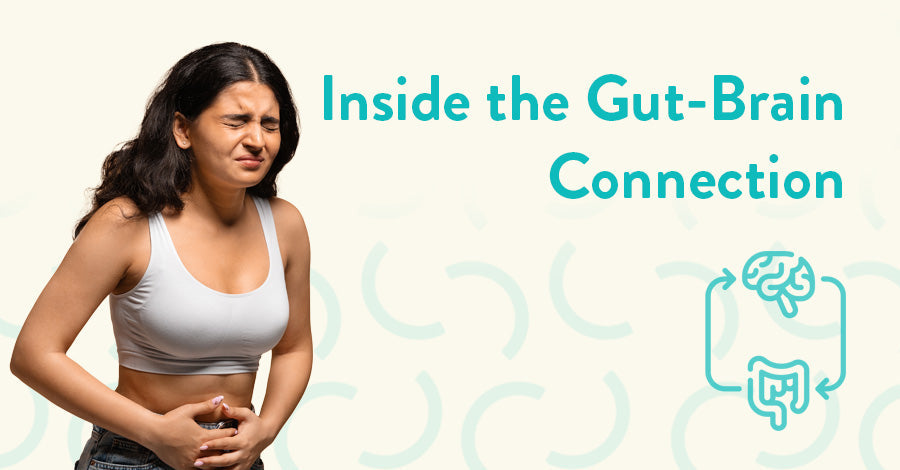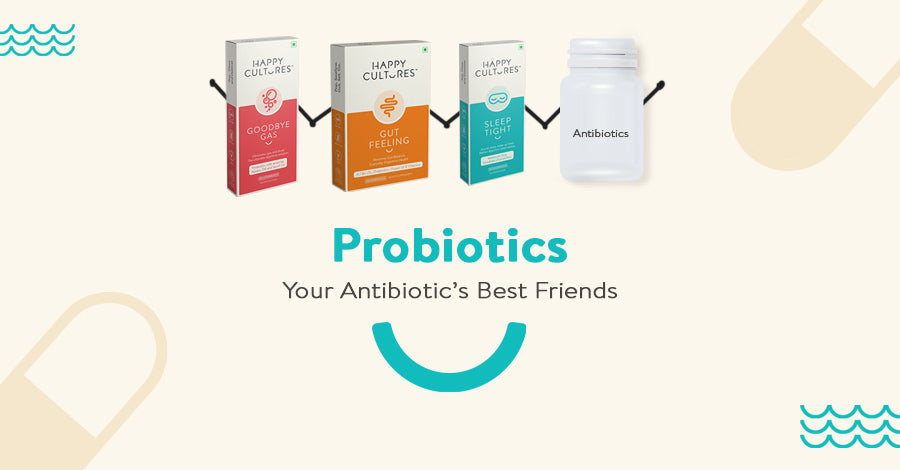The Gut-Brain Connection: New Discoveries Through Microbiome Analysis
For decades, the brain was considered the command center of the human body, an isolated organ controlling every thought, mood, and movement. However, emerging scientific research is now rewriting that narrative, placing the gut on center stage. We now know that the gut and brain are deeply connected through a complex, bi-directional communication network called the gut-brain axis. What’s even more fascinating is how this connection is influenced by trillions of microorganisms that reside in our gastrointestinal tract, collectively known as the gut microbiome.
If you’re unfamiliar with the term “gut microbiome,” it refers to the diverse community of bacteria, viruses, fungi, and other microbes living in your digestive system. These microbes aren't just passive passengers, they actively influence digestion, immune function, hormone production, and surprisingly, even mood and mental health. (This is where you can internally link to your blog post titled “What is the Gut Microbiome” for a foundational understanding.)
Understanding the Gut-Brain Axis
The gut-brain axis functions like a high-speed data cable connecting your gut to your central nervous system. This axis allows the brain to send signals to the gut, and equally, allows the gut to communicate with the brain. The connection is facilitated by the vagus nerve, immune molecules, and microbial metabolites like short-chain fatty acids and neurotransmitters.
These microbial messengers play a major role in regulating mood, stress response, and even behavior. One of the most intriguing findings is that the gut microbiome can produce serotonin, a neurotransmitter often called the “feel-good hormone.” In fact, nearly 90% of the body’s serotonin is produced in the gut, not the brain. This discovery has reshaped our understanding of depression, anxiety, and other mental health conditions, which may now be seen not only as brain-based but also as deeply linked to gut health.
New Insights Through Microbiome Analysis
The rise of microbiome analysis and gut microbiome testing has opened new doors in both medicine and personal health. By analysing a person’s stool sample, scientists can identify microbial species and assess the overall health of the microbiome.
Interestingly, recent studies have shown that people suffering from mood disorders tend to have less microbial diversity and a higher presence of pro-inflammatory bacteria. These findings support the theory that inflammation in the gut can trigger inflammation in the brain, a phenomenon that may contribute to brain fog, fatigue, and cognitive decline.
(At this point, you can naturally insert a link to your blog on “Gut Microbiome Testing” to explain how these tests work and what they reveal.)
Microbes That Influence Mood and Mind
Among the various bacteria studied, certain strains like Lactobacillus and Bifidobacterium have gained attention for their role in producing GABA, dopamine, and other mood-regulating chemicals. These are now referred to as psychobiotics, a class of probiotics that have the potential to improve mental well-being by acting through the gut-brain axis.
Moreover, researchers have discovered that prebiotics, which serve as food for beneficial microbes, can also influence emotional processing. In clinical trials, individuals who consumed prebiotics exhibited lower levels of cortisol, the body’s primary stress hormone, suggesting that gut-targeted therapies could become part of future treatments for stress-related disorders.
However, not all changes in the microbiome are beneficial. A condition known as dysbiosis, where the microbial balance in the gut is disrupted, can negatively impact both physical and mental health. Dysbiosis has been linked to increased intestinal permeability, also known as "leaky gut," which allows toxins and inflammatory molecules to enter the bloodstream and potentially affect brain function.
(🡒This is the right spot to reference your blog on “Dysbiosis”, giving readers a deeper look into how microbial imbalance can cause health problems.)
The Gut’s Role in Neurological and Psychological Health
One of the most revolutionary discoveries in recent years is the potential role of the gut microbiome in neurodegenerative and developmental disorders. Studies have found microbial imbalances in individuals with Alzheimer’s disease, Parkinson’s disease, ADHD, and autism spectrum disorder. While this doesn’t imply causation, it opens up new avenues for therapeutic interventions.
Clinical research is ongoing, but early evidence suggests that targeting the gut with dietary interventions, probiotic supplements, and even faecal microbiota transplants may influence neurological outcomes. Though still in experimental stages, these approaches reflect a growing shift toward gut-focused therapies in managing brain-based conditions.
Symptoms That Point to a Gut-Brain Imbalance
Many people overlook the fact that digestive issues could be symptoms of a deeper gut-brain imbalance. If you frequently experience gut bloating, constipation, diarrhea, or abdominal pain, your gut microbiome may be compromised. But what’s even more surprising is that unexplained mood swings, chronic stress, fatigue, and difficulty concentrating could also stem from your gut.
The term “gut feeling” may be more than just a metaphor; your microbiome might actually be talking to your brain.
Practical Steps to Support the Gut-Brain Connection
Improving the gut-brain connection doesn't necessarily require medication. Small lifestyle changes can go a long way. Begin by incorporating gut healthy foods into your diet, these include fiber-rich vegetables, legumes, fermented foods like yogurt and kimchi, and whole grains. Such foods promote the growth of beneficial microbes and enhance microbial diversity.
Minimizing sugar, processed food, and alcohol intake is equally important, as these can encourage the growth of harmful bacteria. If you’ve recently taken antibiotics, consider probiotics to help restore balance. Choose supplements that contain clinically researched strains and are tailored for digestive and emotional health.
Additionally, microbiome test kits can provide personalized insights, helping you adjust your diet and lifestyle based on your own microbial profile.
The gut-brain connection is one of the most exciting and transformative fields in modern science. We now understand that mental health is not just about the brain but also about the microbiome, a dynamic ecosystem that can be influenced by what we eat, how we live, and the microbes we nurture. As microbiome analysis continues to evolve, it may redefine the way we approach everything from stress and sleep to anxiety and neurological disorders.
Taking care of your gut isn’t just about avoiding digestive problems, it’s about unlocking better focus, stable moods, and emotional resilience. So, the next time you feel stressed, anxious, or low on energy, it might be worth asking: how’s your gut doing?
Gut-Brain Trivia Time!
Question:
What percentage of your body's serotonin—a key mood-regulating chemical—is produced in the gut?
A) 10%
B) 25%
C) 50%
D) 90%
Think you’ve got it right? Scroll down for the answer!
90%





